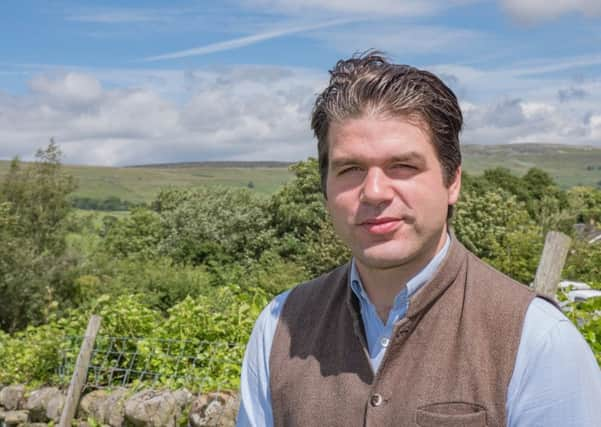Why there is an upland of opportunity in a post-Brexit Yorkshire Dales


When the tiredness kicks in, and the work seems endless, the perennial question will come: “Why do I do this?”
The recent ‘Beast from the East’ reminded me of the March we had five years ago. It wasn’t quite as cold then, but the snow and ice hung around well into April. I was on a ‘career break’ at the time and was able to help out at my uncle’s farm in Upper Wensleydale.
Advertisement
Hide AdAdvertisement
Hide AdThe biggest problem was watering the sheep. Everything was frozen up. Meanwhile, indoor space was at a premium. Every part of every building seemed to be occupied.
Sheep and lambs that could have been put out if the weather was right had to be kept in.
As he was struggling to work out where the ewes still to lamb could go, my uncle had a moment of reflection.
“I wouldn’t mind,” he said, ‘but I’m doing this for a few pence an hour.” That is the sorry fact about upland sheep farming: there is no money in it.
Advertisement
Hide AdAdvertisement
Hide AdSo how do these seemingly unviable businesses keep going? Well, the farmer gets a second job, or the other half gets a second job, or the business diversifies. Perhaps, most significantly of all, the Basic Payment comes through.
Without receiving the EU-funded Basic Payment, many farmers in the Dales would barely break even. The ‘Evidence Compendium’ that has been published alongside the Government’s major ‘Future of Agriculture’ consultation spelled it out.
For upland grazing livestock farms in the past three years, it said a staggering 91 per cent of farm business income’ had come from Direct Payments.
Yet the same consultation paper confirmed that these Direct Payments are going to be phased out completely after Britain’s exit from the EU.
Advertisement
Hide AdAdvertisement
Hide AdOn the face of it that might appear to be very bad news for Dales farmers.
However, the status quo is hardly very appealing or sustainable. As one farmer said to me last week, when the Direct Payments go, lamb prices may at last have to go up to reflect the true cost of production.
And then there are other positives. Direct Payments are going to be replaced by more payments for ‘public goods’.
What is so encouraging about the consultation paper is that it explicitly recognises that upland farmers have the potential to benefit much more than they do now from new environmental land management schemes.
Advertisement
Hide AdAdvertisement
Hide AdThat is because of “the nature of their landscapes and the many public goods they deliver such as biodiversity and flood risk mitigation”.
Such schemes are what the park authority is actively shaping in partnership with farmers and landowner, such as the ‘payment by results’ pilot in Wensleydale.
The next few years are a critical time for upland farming, as a new English agricultural policy is formed.
That means it is a critical time for the National Park, too, as farmers do more than any other group to care for its treasured landscapes. There are plenty of reasons to believe that the future of farming in the uplands could be full of opportunity.